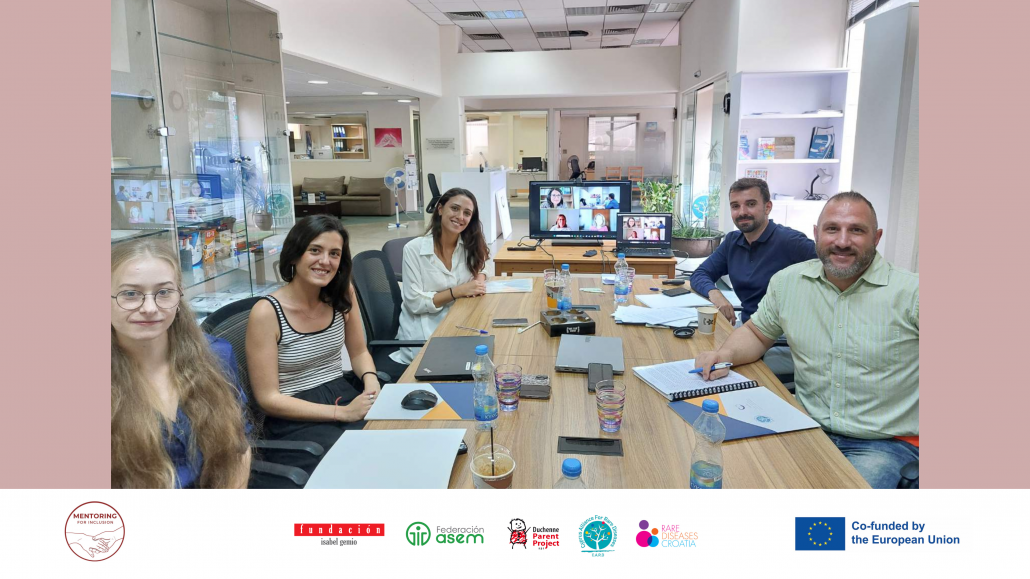Erasmus+ project ‘Quality Youth Mentoring for Inclusion’ showcases its results in Multiplier Events across Europe
In recent weeks, the partners of the Erasmus+ project ‘Quality Youth Mentoring for Inclusion’, co-funded by the European Union, have organized several multiplier events to present the main outcomes of the initiative:
- On Wednesday, December 11, Parent Project held the multiplier event at the headquarters of the UILDM – Unione Italiana Lotta alla Distrofia Muscolare in Legnano, in the province of Milan, with the collaboration of UILDM’s Legnano and Lecco sections. Vittorio Montixi, an educator and project operator for Parent Project, led the meeting. Initially, an overview of the project was presented, followed by a role-playing activity where participants personally experienced the project’s dynamics.
- On Tuesday, December 17, Rare Diseases Croatia hosted the multiplier event at the Youth Health Center in Zagreb. During the event, they explained that the mentoring program aims to establish a relational connection between the mentor and the mentee through a mutual understanding process that unfolds in different stages. In this way, the mentor acts as a “big brother,” offering skills and techniques to help the mentee become aware of their strengths and priorities, thereby enhancing their resilience and emotional management.
- Also on Tuesday, December 17, the Cyprus Alliance for Rare Disorders organized its multiplier event at its offices in Nicosia, specifically at the Folea Center. During the event, they highlighted that the initiative has created a European network for young people affected by rare diseases, aiming to improve their resilience, emotional management, and self-confidence.
The purpose of these events has been to raise awareness about the project and to share its insights with interested stakeholders, such as youth organizations, educators, and entities working in the field of inclusion, to encourage the adoption of this mentoring model in various contexts.
Many thanks to all the people who have shown interest in the Erasmus+ project ‘Quality Youth Mentoring for Inclusion’. We continue working!



















